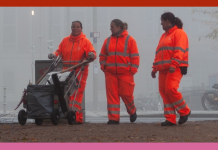In this flexible working focus, Professor Dr Kyriakos Kouveliotis focuses our thoughts on how the global health crisis is impacting the way businesses have shifted their professional activities, ushering in a new digital revolution
It’s apparent that we’re all experiencing a unique situation due to the current, global health crisis. Most businesses have moved their professional activities from face-to-face to working remotely, and during this transformational phase, we have already drawn some fruitful conclusions.
Following this, we should approach these issues by commenting on the most rational queries that many currently have, such as, to what extent do modern workplaces support more flexibility and collaboration, particularly due to the current situation we are in re: COVID-19? Most workplaces have tried their best to respond to the various lockdowns across the world; they have taken initiatives like remote working, sharing projects on the cloud and conducting hundreds of hours in teleconferencing.
Smarter working
Another issue is how can improved office technology aid the movement towards a smarter type of working without necessarily working more? We can be certain that smart office solutions, both in the domains of hardware and software, have provided us with a brilliant set of tools to be as effective as before, and sometimes to be even better. We have discovered new ways of communication and we have learned to utilise more information technology capabilities than ever before.
In this framework, we should also consider future technology advancements that are potentially needed for businesses looking to improve employee engagement. This indeed presents new challenges as we need to bring these advancements closer to our current timeframe, as that way, our change management will be more effective.
Research and development
To achieve this, we need research and development (R&D). We must learn and apply new techniques for big data, machine learning and artificial intelligence. It’s apparent that we don’t have the luxury of waiting for these advancements to enter our lives gradually.
The virus is also teaching us how we should react in future outbreaks, so we must analyse data that help us become more productive. It is only through this mentality that technology will facilitate current working patterns in light of COVID-19.
We should also consider how smart working has become more common in recent years across the private and public sectors, and also if it can play an important part in meeting the challenge of doing more with less. In responding to this, we can comment that in many countries and a significant number of corporations, the results are amazing. We have observed a complete digital transformation in a matter of weeks with impressive results. This new digital revolution, however, generates questions as to why this hasn’t happened before. Was it just a lack of political will and determination? Were we afraid of changing our routines? In any case, all these changes are here to stay. Maybe we are entering a new phase in the history of humanity which could lead to a metamodern digital globalisation and a new industrial revolution – a digital one!
The road map for the business world and the markets is again full of new challenges, however, no IT investment will be successful without investing in human capital. We mustn’t forget that even the DaVinci machine that performs robotic surgeries is operated by a physician – there’s a real person at the other end.
To conclude, we can argue that the business world has tried hard to cope with the current challenges. It’s part of human nature to fight and discover new ways of development as there’s always a silver lining, even in the most difficult circumstances, like those we are experiencing right now.
Above all, we shouldn’t forget what Albert Einstein said: “The measure of intelligence is the ability to change.”











